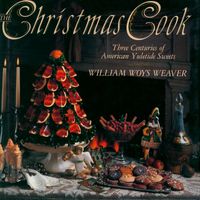Advertisement
Twelfth Night and Its Related Customs
Published 1990
One of the primary activities of the Romans and Greeks on January 1 was to exchange gifts in order to renew old friendships. The xenia, as this exchange was called, was a means of recementing political relationships, reaffirming family connections, remembering lovers, and reoiling the bonds of financial arrangements. In colonial America, the New Years gift for a long time received far more emphasis than the distribution of gifts at Christmas.
Christmas gifts were generally small and symbolic, a sprig of gilded rosemary or a gilded nutmeg, an apple stuck with a sprig of fresh rosemary, an orange or lemon stuck with cloves, a marzipan figure or perhaps a Baby Cake. At New Years, however, moralizing books for children, a purse, a trinket box, or some other object of continued usefulness might be given out during open house as a reminder that New Years was a clean slate for self-improvement. We should not forget that this exchange was accompanied by plenty of ale, hard cider, wine, punch, hypocras, and especially at New Years, a slabby (thick) drink variously called Lamb’s Tongue or Lamb’s Wool.8 Lamb’s Wool is a corruption of lammas-owel, originally a pre-Christian drink served at the Festival of Lughnasa on August 1—the ceremonial beginning of the Celtic harvest. In England, this beverage is now more generally known by its Anglo-Saxon name: wassail. Traditionally, wassail was served in a wooden bowl.

